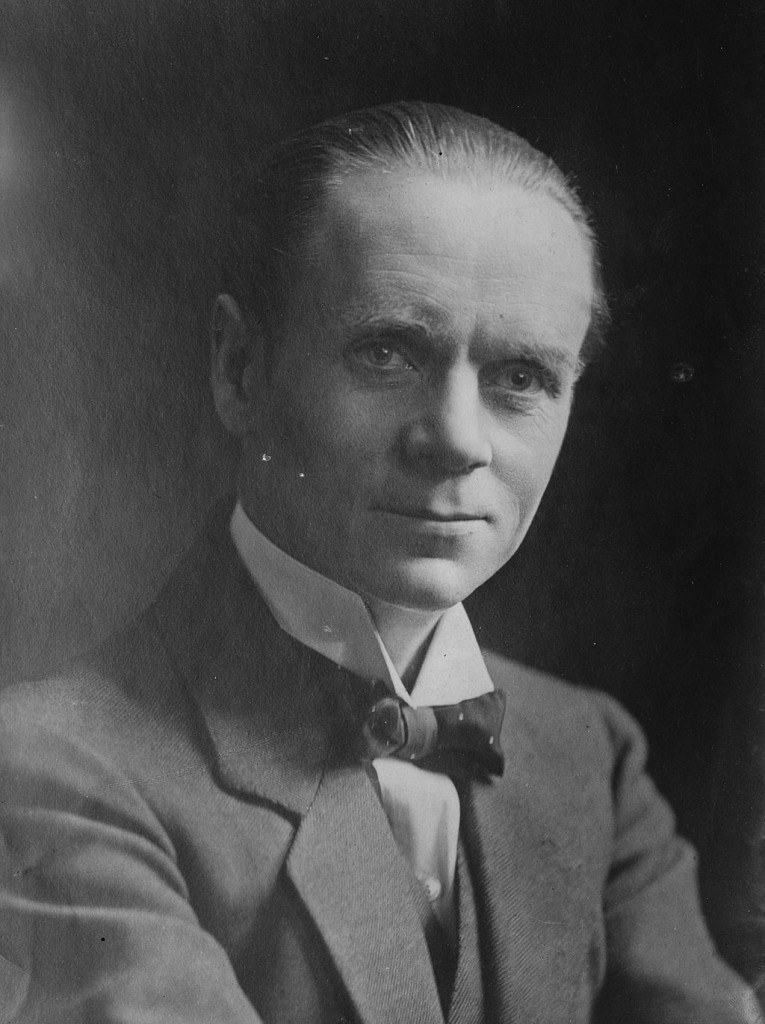One hundred years ago the outbreak of World War I marked the end of the liberal era. The policies of free trade, peace by disarmament, and liberal constitutionalism seemed to have failed.
One of the earliest victims of the war was a theory brought forward in 1909 by Norman Angell in his book “The Great Illusion”. In the book, Angell, a British politician, peace activist, and author, who received the Nobel Peace Prize in 1933, popularized the idea that war and conquest could not possibly pay off in an advanced industrial society, that arms races were harmful, and – most of all – that free and open trade would inevitably lead to such an interconnectedness of economic interests between countries and all of their citizens that it would effectively eliminate the true sources of war. Universal free trade was the direct path to eternal peace.
The events after August 1914 made Angell and his theories a laughing stock. The era of liberal free trade had ended with the most deadly war ever. Modern industrialism made war even worse.
So was Angell fundamentally wrong? His ideas, after all, had a very venerable ancestry. Great liberals like John Stuart Mill and Richard Cobden had developed similar theories. It was, of course, easy to argue that universal free trade never really existed – not even during the Victorian age. Also free trade had suffered some setback in the years before 1914. Germany and the United States had turned staunchly protectionist. Only in Britain free trade liberals won landslide victories in the elections of 1906 and 1910.
Nevertheless, it becomes clear, that free trade is not the “grand panacea”, as Cobden had believed. Other factors, such as religion or nationalism, could have a negative effect on peace in their own way.
The question remains whether free trade and open markets still do substantially contribute to peace. Here Angell can be vindicated partially at least.
In the following graph I have used some statistics to demonstrate the point. The Liberal Institute is one of the co-publishers of the annual study “Economic Freedom of the World”.
The report measures economic freedom (levels of personal choice ability to enter markets, security of privately owned property, rule of law, etc.) by analyzing the policies and institutions of 152 countries. The extent of economic freedom is measured in five areas, such as size of government, stable money, rule of law, regulation and, of course free trade. The results are placed on a scale from 0 (not free) to 10 (free) that reflects the distribution of the underlying data.
In the graph the economic freedom data in general and those of the free trade criterion are correlated with the data set of the “Global Peace Index”, which tries to measure and rank the domestic and international peacefulness of countries. The countries that were measured were divided into three groups, from most peaceful to least peaceful. Here is the result:
As one can easily see, on average the most peaceful countries have a fairly high rating on the economic freedom of 7.71, while the bottom group has a much lower rating of 6.48. Free trade is even more of a trade mark for peaceful countries (7.81), whereas the bottom group has to be content with 6.7 points.
The results at least strongly support the assumption that open and free trade are quite important drivers of peaceful development. They may not be an infallible instrument to achieve the noble goal of world peace, but it is very unlikely that peace can prevail for long without it. Thus, it has to be said, Norman Angell was not completely wrong after all!
Do you strive for more information on the topic? See:
http://en.wikipedia.org/wiki/Norman_Angell
http://www.visionofhumanity.org/#/page/indexes/global-peace-index





